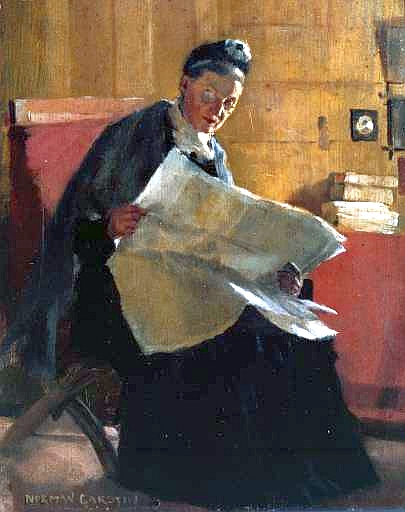 In addition to staying on top of efforts to interfere with the teaching of evolution and climate change, we here at NCSE HQ try to follow the latest developments in evolutionary biology and climate change, and keep our eye on how scientific evidence is being represented in the media, public pronouncements, political campaigns, and elsewhere. It’s all part of trying to be as well-informed as we can about how challenges to established science may directly or indirectly trickle down into what students are being taught in school.
In addition to staying on top of efforts to interfere with the teaching of evolution and climate change, we here at NCSE HQ try to follow the latest developments in evolutionary biology and climate change, and keep our eye on how scientific evidence is being represented in the media, public pronouncements, political campaigns, and elsewhere. It’s all part of trying to be as well-informed as we can about how challenges to established science may directly or indirectly trickle down into what students are being taught in school.
We have a habit of shooting e-mails around when something catches our eye: “hey, bloggers, did you see this? Someone should write about it!” But with fewer than a dozen people, we can’t cover everything in depth. So we thought we’d try something new. Every week, we’ll try to share with you some of the stories that caught our eyes. We’ll provide the links and a couple sentences about why we thought the story was cool. If someone did end up writing a whole post, we’ll link to that too.
Feel free to share articles that crossed your screen this week in the comment section, or to e-mail us directly during the week with things that caught your eye. We’ll add the best to our weekly posts.
- Why Don’t We Know the Age of the New Ancient Human? The Atlantic, September 14, 2015 — Science writer Ed Yong, with the help of paleoanthropologist John Hawkes, explains why we don’t have a date for the Homo naledi fossils and what it will mean (or not mean) if a can cannot be established.
- Scientists Declare an ‘Urgent’ Mission—Study West Antarctica, and Fast Washington Post, September 29, 2015 — Written by Chris Mooney and admirably clear, this article explains why a group of Antarctic research scientists representing many different disciplines agreed that study of the Thwaites glacier off western Antarctica should be a major priority for NSF-funded research in the next ten years.
- Coke Spends Lavishly to Sugar-Coat Science (on-line title: Coke Spends Lavishly on Pediatricians and Dietitians) The New York Times, September 29, 2015 — Taking a page straight from the tobacco industry playbook, Coca-Cola has donated nearly $120 million to non-profit organizations such as the American College of Cardiology, the Academy of Pediatrics and the Academy of Nutrition and Dietetics. The money may be given with no strings attached, but such ties are designed to give cover to the company when it makes the "true but irrelevant" claim that sugary sodas are not solely responsible for the obesity epidemic. See my post on the article “The Too Sweet Smell of Charity.”
- Wheels of Rapid Evolution (on-line title: That Stinky Cheese Is a Result of Evolutionary Overdrive) The New York Times, September 29, 2015 — Scientists have sequenced the molds that give “stinky” cheeses their distinctive flavors, smells, and textures. It turns out, to the surprise of no one, that placing strong selective pressure (like that that cheesemakers have been putting on cheese molds for the past several centuries) on a system leads to rapid evolution.
- This Goofy Bird Just Defeated the Koch Brothers IndefinitelyWild, September 30, 2015 — Turns out, ensuring that the sage grouse doesn’t get listed as an endangered species may have been the best way to protect it from extinction, and to preserve the power of the Endangered Species Act itself. And as a bonus, keeping the sage grouse from being listed as endangered has protected western wildlands from fossil fuel development.
- Mealworms May Be a Possible Solution to Plastics and Styrofoam Pollution Science World Report, October 1, 2015 — This is kind of cool from a climate change/environmentalist perspective. Some researchers have found that mealworms are able to consume and digest styrofoam without harm to their health—so there’s a potential solution to a complicated problem regarding non-biodegradable waste.
- Snake Genomes Reveal Shared Plans for Making Legs, Penises Not Exactly Rocket Science, October 1, 2015 — Ed Yong explains that new research suggests the male sex organ is, kinda, actually, a third leg. Evolution has a sense of humor, it seems. It’s also really, really cool.

